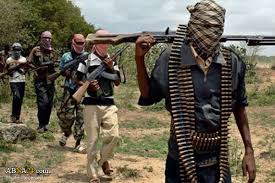ABUJA, Nigeria — Nigeria suffered its second mass school abduction in four days on Friday as gunmen attacked a Catholic school in the troubled north, deepening fears over the safety of students and the government’s ability to contain worsening insecurity.
The latest incident occurred at St. Mary’s School in Papiri, Niger State, where armed men stormed the premises and abducted an unknown number of students. Local broadcaster Arise TV reported that 52 children were taken, while police said a special team had been deployed to track the attackers and rescue the captives.
Friday’s raid followed Monday’s abduction of 25 students in neighbouring Kebbi State, in the largely Muslim town of Maga. The back-to-back attacks underscore how school kidnappings have become a defining feature of insecurity in Africa’s most populous nation, with armed gangs viewing schools as “strategic targets” that guarantee national and international attention.
UNICEF estimates that in 10 conflict-hit northern states, only about a third of schools have early-warning systems to detect or respond quickly to threats. Since the 2014 kidnapping of 276 schoolgirls from Chibok by Boko Haram — an attack that thrust Nigeria’s crisis onto the global stage — more than 1,500 students have been seized in similar mass abductions, many released only after ransoms were quietly paid.
Boko Haram and its offshoots, including an Islamic State affiliate, remain active across the northeast and parts of neighbouring Niger, Chad and Cameroon. Their fighters have attacked both churches and mosques, ambushed troops, and mined roads, while continuing to recruit, sometimes forcibly, from impoverished communities the state struggles to serve.
But much of the recent wave of school abductions has been blamed on loosely organised “bandit” groups operating mainly in the northwest and north-central regions. Often made up of former herders who took up arms after resource conflicts with farmers, these gangs focus on ransom, not ideology. They typically arrive at night on motorcycles, sometimes in military-style uniforms, and disappear with their hostages into remote forests where state presence is thin.
Analysts warn that the line between jihadist factions and bandit gangs is blurring, with signs of cooperation in weapons supply, logistics and intelligence.
Despite military airstrikes and special operations, militants and bandits continue to overrun outposts and raid villages, stretching Nigeria’s security forces. Last month, President Bola Tinubu replaced the country’s service chiefs in a bid to reset strategy.
The latest kidnappings come amid heated rhetoric from U.S. President Donald Trump, who has accused Nigeria’s government of allowing targeted killings of Christians and threatened to halt aid and consider military action — a claim Abuja strongly rejects, noting that both Christians and Muslims have been victims of the violence.
For parents in Papiri and Maga, however, the political arguments feel distant. Their urgent question is simpler: when — or if — their children will come home.






















